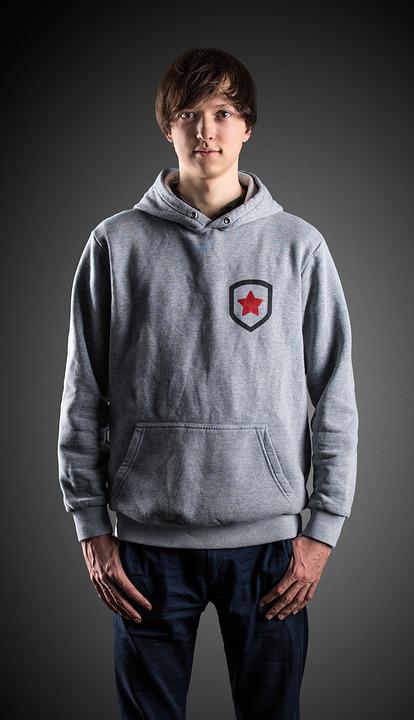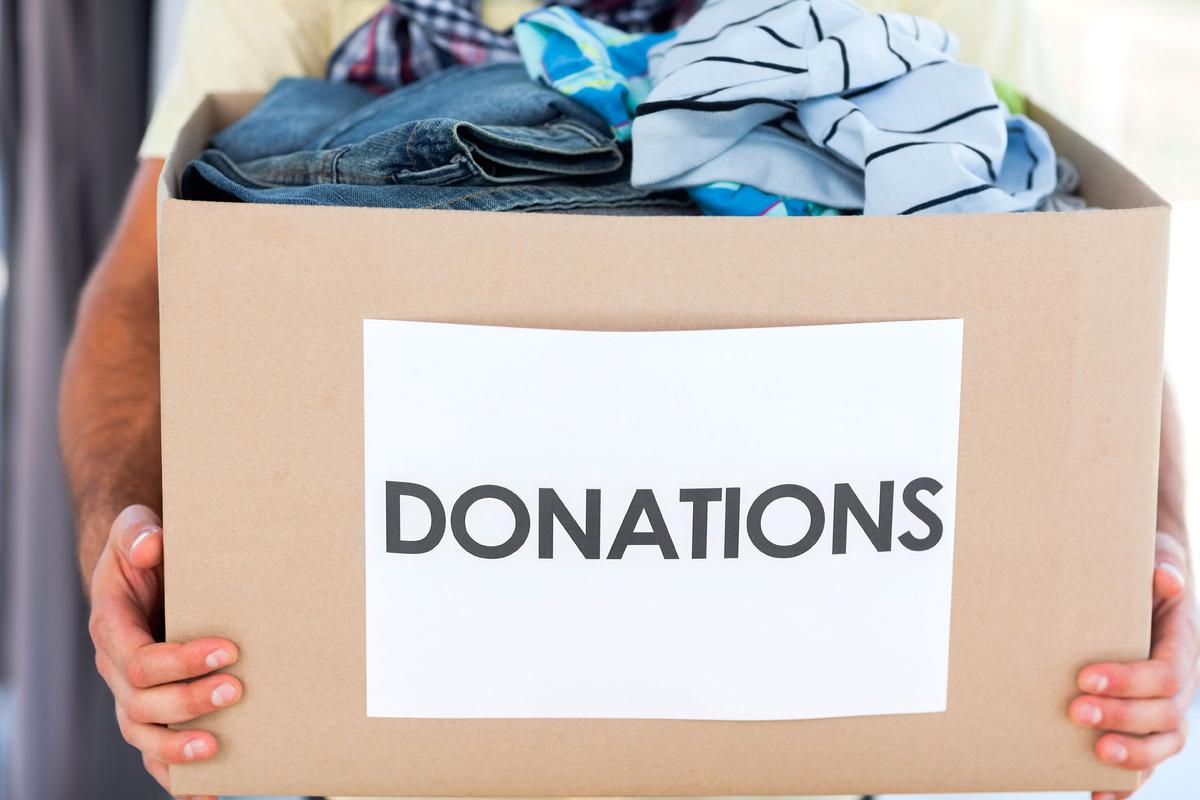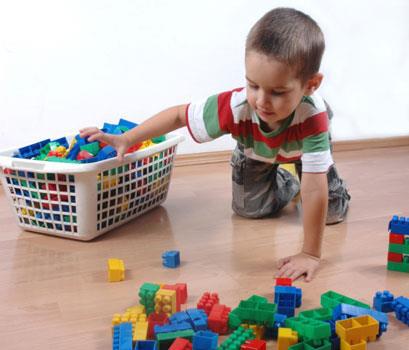 |
Blog
|
 |
|
Monday, April 17 2017
With the Summer season just around the corner, many of us get on the "decluttering bandwagon" to freshen up our wardrobe and various areas in our home. Did you know that you can actually make money from your clutter? It's true!
Do you have CD's, DVD's, blue rays and video games you are no longer using or want? Why do they need to take up precious real estate in your home, then? Decluttr.com is an online site where you can sell these items. Simply scan the bar code on your item to learn the value, ship them and the money will be direct deposited into your account or even sent to you via check the next day. How easy is that?!?! And...better yet, the site even pays your shipping! You have no excuses!
Nextworth.com is a site where you can sell get a quote, ship for free and get paid for your smartphones, tablets, video games, laptops, ipods, video cameras, portable audio and wearables such as FitBit.
Do you have designer clothing you would prefer to sell instead of donate or throw away? Then, Tradesy.com is for you! All you need to do is list the items in your closet or dresser that you want to sell. (Good photos will help you sell your items faster.) Once they sell, the site sends you a pre-paid, pre-addressed shipping kit so you can send your merchandise. They take 9% commission on each sale. Certainly, making 91% is better than having the item take up space in your closet!
If you take a closer look around your home, I am sure you will locate items that you are ready to part with and have just become clutter. Why not sell them and make some money?
Hint, hint - You can then use the money you've made to hire a professional organize like myself to declutter and organize the various areas of your home that are just too overwhelming for you to deal with. It's a win-win situation!
If you are in need of A Better Space, don't hesitate to contact me. I am more than happy to help!
Wednesday, March 15 2017
Almost every woman I know or have met has created a crazy, busy life for themselves. They tend to have a house, husband or significant other, kids, full-time job and lots of responsibility around the house and obligations to their family.
Life is complicated enough. We don't need it to be high maintenance.
What do I mean by that?
Often times, there are ways that we can streamline our responsibilities and our possessions to make our lives easier.
As a professional organizer, one of my responsibilities is to help my clients identify where they can change either the way they do things or reduce the amount of possessions they have in their life. Sometimes, we can identify items we possess that could be replaced by items that are simply easier to maintain and use.
Some examples could be:
1. Vacuum cleaner - Is your vacuum cleaner easy to use? Is it portable enough that you can easily move it from one floor to another? Are there tons of attachments? Is the bag easy to replace when full? Does it store away without taking up a lot of room? If not, you might want to consider purchasing another vacuum cleaner that would be lower maintenance.
2. Paper Shredder - Is your paper shredder sufficient for your needs? Does it shred paper efficiently? Does it accommodate credit cards? Does it have a cross-cut feature to ensure confidentiality of your paperwork? Does it jam easily? Does it overheat quickly? Consider these points to avoid wasting time and energy when it comes to shredding your paperwork.
3. Clothing - I don't know about you but I do not like to iron. (I have had the same iron since 1983!) I do anything possible to avoid ironing. One way you can reduce the amount of time you spend ironing is to purchase clothing that is not 100% cotton. Another time-saver is to put your clothes into the dryer - even on a low setting - and hang it up while it is still warm so the wrinkles fall out.
4. Kitchen - One area of the home that tends to accumulate clutter is the kitchen. How many times have you purchased a small appliance only to determine that it is never used and it just sits on your counter, collecting dust and taking up space? How many items are you not able to put into the dishwasher to clean and have to manually wash them? Do you have a set of silver from your grandmother that sits in a box and is never used?
5. Knickknacks - An abundance of knickknacks could easily qualify as a high-maintenance item. Do you have a collection of knickknacks that someone gave you and youa re not even fond of? An abundance of knickknacks can mean having to take more time to dust. Consider downsizing your collection to reflect only your favorites and truly special to you.
Items that are hard to maintain are often unused.
What items do you possess that are more trouble than they're worth? Take a look around and share your thoughts. I bet a lot of you have the same type of items!
In the meantime, if you are struggling with "too much" and your life is "high maintenance", it might be time to declutter and organize your home. Give me a call or send me an email and lets talk about your "high maintenance" life. I can show you how to have A Better Space instead!
Thursday, January 19 2017
We start at a young age to collect things. It could be clothing, pictures, collectibles, books, letters, greeting cards or other items that belong to us. They are our possessions. We get great joy from gathering items we can call our own. Over the years, our collection of things tend to grow.
Then, we grow up and move out of our parents' home. We take our "stuff" with us. However, we tend to continue to collect things. Our wardrobe, our collection of books, items for our apartment or home, for example, continue to expand. Before we know it, we have filled our space with so much, we lose track of what we have. Sound familiar?
When does it become a time when we finally say "Enough already!"?
Over the years, I have works with hundreds of clients who contacted me because they were at the end of their rope. They felt that it was "enough already!". That is the big picture, a general statement.
However, when we actually get down to the nitty gritty, sometimes it becomes difficult to say "I have enough". We look more closely at our possessions. Do we have enough black pants? Do we have enough sets of dishes or glassware? Do we have enough bed linens? Do we have enough artwork? Do we have enough books? (The list goes on and on.)
Personally, I have been living in my current home for over 18 years. I, like everyone else, have continued to collect items in my home. I, too, have filled my home with special possessions, practical possessions, etc.
This year is different. This year I have declared the year 2017 as the year I say "Enough already!". I am, like I tend to do on a semi-annual basis, going through my possessions to get rid of what I no longer need. The difference is, this year I am saying that I have enough and want to focus on using the items I already have and avoid going out and buying more. (What a great way to save some money!) I want to become more realistic about what I truly need to hold on to and what things I can let go of, because I have more than enough of something.
This, sometimes, can be very difficult to do. We can always come up with reasons as to why we should hold onto something. "It's still in good condition." "I spent good money on it." "Someone gave it to me."
If you find that you are making these statements and using them as an excuse to hold onto something, it might just be time to let it go.
Make 2017 the year that YOU say "Enough Already!". If you find it difficult to do on your own, simply reach out to a professional, such as myself, who can help you to decide how much is the right amount to hold onto and how to let the other stuff go. Remember, it's all about balance. It's all about having "A Better Space"!
Wednesday, January 04 2017

When was the last time you looked around your home? I mean, when was the last time you looked closely at your possessions and evaluated them?
When we have lived in the same home for a long period of time, we tend to not see the clutter that is "hiding in plain sight".
Our homes can have everything in its place and still be cluttered. Some of those items which are well organized are actually things we can do without. However, they go unnoticed.
One example might be an old music system. So many of us listen to music these days online and have downloaded our CD's onto our computer or an ipod and we no longer pull out a CD to listen to our favorite tunes. So why are we holding onto those CD's?
Another example are books. When was the last time you looked at your collection? Perhaps your taste has changed. Perhaps you have read a certain book several times and will not be reading them again. Perhaps you got some books as gifts and felt bad about getting rid of them. Perhaps you now have a Kindle or other electronic reader and use it now, instead of reading a physical book. So now, they are just taking up space on a bookshelf, collecting dust.
How about those collectibles? I see this all the time when working with my clients. Whether its stuffed animals, antique model cars, Precious Moments, etc., they might be collecting dust and no longer appreciated. When was the last time you really looked at your collection(s) and appreciated them?
Other types of hidden clutter that might not be in plain sight but still are accumulating could be pantry items you never use, holiday decorations stored in a bin you never pull out and most commonly, old paperwork. (I once met someone who had old paystubs dating back to the 1960's which he kept in his attic.)
Sometimes we have clutter we purposely chose to hide. Many people have never-given gifts hiding out in the back of a closet or on shelves in a basement. Some have gifts they received and feel guilty about getting rid of.
Although this hidden clutter might not seem as problematic as the more obvious clutter, it can be worth tackling.
Selling some of those items will give you financial benefit while making someone else happy who wants to use them.
Keeping your spaces uncluttered makes it easier to clean, easier to move items around and easier to find storage space for the things we really do want to keep.
So, what clutter are you hiding in plain sight?
Thursday, November 03 2016
I know it's sometimes hard to believe but teenagers can be organized. We need to guide our kids in various areas so the whole picture comes together. There is the physical and mental aspects of disorganization which need to be evaluated.
During the school year, keeping teenagers focused on everything that needs to be accomplished in a day can be a challenge. Here are some ways you can help them:
1. If you have trouble getting your teen up in the morning, buy the most annoying alarm clock you can find and put it far from the bed. That way they are forced to get up and turn it off. Limit their access to electronics as the day winds down to get their mind to relax, providing a better night's sleep, making it easier for them to get up in the morning.
2. To keep bathroom time to a minimum, place a timer inside and set it for 15 minutes. Teenagers are notorious for getting lost in the shower. Once the timer goes off, time's up—period. This is great for siblings who share a bathroom.
3. Help your teen navigate their school roster by copying their schedule on a copy machine to fit in a wallet or backpack. They can also keep a copy in their locker.
4. List activities on a large calendar and color-code them. Keep the calendar in a central location in the home for all to see. Use a different colored highlighter for each member of the household. This is a great way to make sure everyone knows where they have to be and when, as well as assisting parents with carpool schedules.
5. My son never liked sitting at a desk in his bedroom when he was in school. Determine where your teenager would be prefer to do their homework and study. It might be a dining room table, kitchen table or even a comfortable couch with a loveseat. The important thing is that they like where they are working and are productive.
6. Help your teenager develop good time management skills by mapping out a weekly schedule of responsibilities. If they have a larger project to get done, schedule out blocks of time that will enable them to complete the project on time.
7. Provide organizing tools such as a clothes hamper in their bedroom, hooks on the back of the bathroom door for towels, and containers to hold desk supplies, sporting equipment or other items for easy access.
8. Create a chore chart that schedules blocks of time for them to do their own laundry, take out the trash, do some light housekeeping or any other responsibilities you want to assign to them to teach them responsibility and lighten your own load.
Utilizing physical organizational tools and good time management tools will help your teenager to become an organized and productive individual.
Tuesday, September 06 2016
Hello September! Now that Labor Day is behind us, we tend to buckle down and refocus on things we might have neglected over the Summer. Sometimes they might be projects we have put off because they are too overwhelming to even think about accomplishing.
Did you know that, no matter how large the project might be, you can get it down? It's true! All it takes is some planning. The key is to break the project down into smaller manageable pieces and tackle them, one by one, until the entire project is completed.
I work with so many clients who need assistance with project management. They just don't know where to begin and the steps it takes to get the job done. Whether it is decluttering and organizing a room in your home or planning an event, the concept is the same.
Here are a few steps you can take to accomplish your goal, no matter how large or small:
1. Use a large piece of paper and a large index card. I like to use a large piece of paper to formulate my ideas and a large index card with lines on one side and blank on the other to list the steps. I put the name of the project on the blank side of the index card and use the lined side to list the steps necessary to complete the project. The large piece of paper is where I dump my ideas. They do not need to be in any certain order but they do need to be detailed.
2. Take some time to think about the steps needed. Imagine starting at the bottom of a set of stairs and working your way up to the top. The top is the completion of the project. What steps do you need to take to reach your goal? Write them down on the large piece of paper and fill in other steps you need to take, as you go. No matter how large or small the item, write it down so you don't overlook it.
3. Number the steps you need to take. Take the large piece of paper with the list of steps you created and put a number on the left side of each, in the order they are to be done. Once in order, transfer the list to the lined side of the index card.
4. Determine your deadline and work from there. Take some time to think about a deadline for each of the tasks and how long each task will take. When determining a start date, work backwards from your deadline. This will provide you with sufficient time to get the project completed. Then, determine how long each task will take. This will help you create a time line to work from.
5. You are now ready to begin your project. Simply schedule time on a consistent basis to work on your project, step by step. With a plan to refer to and a time line in which to work, you will be successful in completing your project. Check off each item as you go, so you can see your progress and enjoy a sense of accomplishment as you move toward completion.
The key to success is breaking any project down into management pieces and planning a strategy for success.
If you are feeling overwhelmed with a project you need to tackle, don't hesitate to contact A Better Space. We can either meet in person or I can coach you by phone to develop your plan for success.
Monday, August 15 2016
Are you ready to declutter but the items you want to get rid of are not yours? When is it okay to throw away or donate other's possessions?
There are some specific circumstances when it’s okay:
- When you have received explicit permission to do so. There are times when I am working with a client in their master bedroom and their spouse is not present, nor wishes to participate in the process at that time. Sometimes that spouse or partner will accept, or even appreciate, having the other manage his or her wardrobe decluttering for them. Sometimes, it's an elderly parent who might appreciate some help with the decluttering. They might give you some general guidelines to follow but otherwise allow you to decide what stays and what goes.
- When the other person is a child who is too young to make such decisions.What is too young? Keep in mind that some children as young as three years old can be involved in the decluttering process. They know what they like and do not like at that age and begin to start making decisions on what to keep and what to get rid of. I find that parents are sometimes surprised at how much their children are willing to discard.
- When you have the legal authority to make decisions for someone who can no longer make decisions for himself or herself. This scenario can come into play when you are dealing with an elderly person, a person who has a health issue that does not enable them to make decisions on their own, or, in certain circumstances, a hoarder who has provided a Power of Attorney to either a family member or someone else to make decisions on their behalf. (I personally worked on a hoarding project several years ago where an attorney had Power of Attorney to make decisions for the client and hired me to bring order back into the home.)
In general, however, it’s disrespectful to get rid of another person’s belongings, and it can build up resentment and distrust that have a wide range of negative repercussions. What can you do instead? The following are some suggestions:
- Have a discussion about the items in question, where each party listens respectfully to the other person’s position. There’s always a chance that if you calmly explain why you’d like something to be discarded you can convince the other person to go along with you. Perhaps, when you better understand why someone wants to keep something that you want to discard, you’ll change your mind and decide it’s fine to have it stay.
- Reach a compromise. This is the basis of a good relationship. Perhaps your husband has a pair of old, beat-up shorts that he loves to wear because they are comfortable and is not willing to part with them, as much as you do not like seeing him in them. Why not agree that he can keep the shorts but not to wear them when the two of you go out together. If there’s a disputed item of décor, maybe it can be displayed in a spot in the home where you rarely go.
- Agree on boundaries. It might be okay to keep a pile of t-shirts for memorabilia purposes, but it needs tobe able to fit within a designated space: a dresser drawer, a storage box to be kept on the top shelf in the closet, or perhaps a shelf in the garage. It's about what is a reasonable amount to keep. Pick a number that will work and select from there.
- Bring in a professional organizer. An impartial third party with recognized expertise can ask the right questions and make suggestions, all while avoiding the emotional landmines that can be triggered when a spouse or partner makes suggestions to the other. (I am proud to say I have been told over the years that I have saved a lot of marriages.) The process can be stressful but a professional knows how to approach the situation and keep it calm. If you are interested in eliminating the clutter that has accumulated anywhere in your home and want to avoid conflict with your partner, spouse or child or have been assigned the task of eliminating someone else's clutter and feeling overwhelmed, don't hesitate to contact me. I am here to help you get through the process and reduce the stress.
Wednesday, August 03 2016
I just returned from a whirlwind two week adventure on the back of a Harley Davidson motorcycle. Five others along with myself rode three motorcycles about 5800 miles from Pennsylvania to Ohio, Indianapolis, Illinois, Wisconsin, Minnasota, North Dakota, Montana, Wyoming, South Dakota, Nebraska, Iowa, Missouri, Illinois, Indianapolis, Ohio and back to Pennsylvania.
We saw some amazing sites including Glacier National Park, Badlands National Park, Devils Tower, Sturgis, Mt Rushmore and Mark Twain's hometown in Hannibal, MO among others.
The minimalistic part of this trip was a major challenge for me. I am used to having all of my clothing and accessories at my fingertips. However, when you share a piece of luggage strapped onto the back of the Harley and have to life out of it for fourteen days, staying in a different hotel every night, you quickly learn how to be a minimalist.
We each packed for only four days, having to do laundry several times throughout the trip. I packed only 4 sleeveless, 4 shortsleeve, 4 longsleeve and two fleese tops along with 2 pair of pants, 1 pair of shorts, underware and socks for 4 days and 4 night shirts. All accessories were travel size. We relied on hotel shampoo, conditioner and soap for the most part and no blow dryer. I packed one pair of sneaks and one pair of flip flops along with a full set of raingear especially made for the Harley, a wind jacket, denim jacket and leather jacket for those cold and windy days and nights. I lived mostly in my Harley boots. It's amazing what you can fit in half of a suitcase that you share with your significant other. We packed all of our clothing by category and labeled each plastic bag they were stored in (after kneeling on them to squeeze the air out of them) to help quickly identify what we needed when we needed it as we traveled.
Riding on the bike for 14 days gave me a lot of time to reflect.
I began to feel that I was so materialistic at home, with choices of so many types of clothing at my fingertips and how I could actually survive and still be comfortable with so little while travelling. It certainly gave me a whole new perspective. (Mind you, I have no intention of personally going more minimalistic at home. I did get tired of wearing the same clothing over and over again!)
The moral to this story is that, it is possible to live a much more simple life, if you so choose. It's all a matter of mindset.
This lesson in life will stay with me for years to come and I will share it will my current and future clients to encourage them when they want to downsize and live a much more minimalistic life - focusing more on the important things in life and less on the material things.
If you need any personal help with downsizing and/or living a more minimalistic life, I can show you, first hand, how to do just that. As they say, "been there, done that"!
Friday, June 24 2016
Being organized does not just pertain to adults. It benefits children as well.
Did you know that you can actually boost your child's confidence, their ability to learn and their maturity level by helping them to create order in their life?
Being organized is more than just a clean room. For adults and children alike, it is essential for learning. If you don't have the materials you need to ace a test or you are surrounded by clutter, it affects your ability to focus.
Organization encourages responsibility. For children, it can be as simple as cleaning up their toys and putting them into clearly marked containers. When your child is organized, they become more independent and their frustration level is reduced. If they know what they want and where to find it, they can do more things on their own, which gives them a great sense of independence and self-esteem.
A few habits is all it takes to help your child develop organizing skills. There are techniques that work for younger children as well as older children.
1. Neatly storing their things:
Younger children can get involved with cleanup. Make it fun by setting a timer and creating a pick-up game that lasts about 10 minutes. If you have more than one child, get the entire family involved. Get your child used to cleaning up as they go and doing a final sweep at the end of the day. By the time your child reaches grade school, they will be able to keep their toys organized on their own. Using simple containers set up by category and labeled with pictures of the type of toy or game will make clean up a breeze.
When it comes to older children, pointing out their successes will encourage them to do more. Your grade schooler or tween can clean up toys and games, help clear their dishes off the dinner table, dust and hang up their jacket. Show them examples of what they are already doing and what else they could also be doing. Make it easy for them to be successful. When your child sees that they already know how to be neat, the task will feel more doable to them.
2. Time Management and Routines:
Younger children do not have a concept of time. However, that does not mean they cannot be taught promptness; it's just a matter of creating routines. For example, every night is "bath, book, bed". If it is verbally stated before the routine is to start and implemented each night, they will get accustomed to staying on schedule.
Older children need to learn not to procrastinate. This can be taught by requiring your child to lay out their clothes the night before or plan out a long-term school project a week or so in advance.
3. Completing the task:
Younger children can learn this concept as young as 1 year old. Read them a story from beginning to end at bedtime. They are taught that things have a beginning, middle and an end. Referring back to what I mentioned above, having your child put away a toy after they play with it before pulling out another toy will teach them task completion, as well. When they are working on a larger project, like a Lego structure, however, you might decide it's okay to leave it for another time to complete. This will teach them how to manage long-term projects.
Older children need to learn rules and limits. Older children get distracted by technology, which is a big hindrence for teens when it comes to completing homework or a chore around the house. Set up tech-free zones in the home and create a quiet place for your child to study. Set time limits as to how long and when they are permitted to use a gaming device or their phone for texting.
Lastly, practice what you preach. Children learn by example, so be sure to follow the rules when it comes to these areas.
If you are overwhelmed with your own clutter or your child's, I can help. I work with busy moms to organize their homes and their time, as well as working with their children to create an organized bedroom or playroom and create time management plans for the family. Don't hesitate to contact me to discuss your particular clutter issues.
Thursday, June 09 2016
In a few months, I will be celebrating another birthday. As I get older and reflect on my life, I recognize how much we, as adults, evolve and change.
Our ideas about how we want to live our lives, our priorities and other decisions we are confronted with as we get older naturally change.
One of the ways we change, and might not recognize, is our priorities. Think about it. It is not only about who we socialize with, live with, spend time with, things we want to do or achieve, but the items we feel we want to hold on to.
Our priorities change as to what we want to keep.
When working with my clients who have gathered items for a long period of time, I find it interesting how we go through those items and they find that some of what they felt was so important to hold on to, is no longer that important.
Sometimes, it's not the item itself, but the number of items we keep. For example, do we need to hold onto such a large number of a particular item, or is it possible to pare it down to a smaller number which can be appreciated and perhaps still evoke a fond memory of the person it once belonged to?
Interestingly enough, my son created a Memory Box when his father died. He was six years old at the time. We make a habit of reviewing that Memory Box once a year. Not only does he get to go down memory lane, but he sometimes finds that there is an item or two that no longer hold the same significance as they once did, and he can part with them.
I once had a client who had held onto a box of handkerchiefs that belonged to her deceased husband's deceased parent. When we found the box on a shelf in her coat closet, we opened it up and she looked at the handkerchiefs she had not seen in years. When I asked her why she had held on to so many, she said because they belonged to her late husband. I explained that now they belonged to her. What connection did she have to them? Did she need to hold on to almost 100 handkerchiefs? She realized she did not and reduced the box down to ten of her favorite, instead.
Is it possible that you have items in your home that you have been holding on to for years and have not looked at for a long time that do not carry as much significance as they once did? Have your tastes evolved?
The next time you are decluttering and organizing your home, take this into consideration. Are you ready to participate in an "evolution revolution"? If so, you will find that those items you are saving will take up a lot less room if they are pared down to what means the most to you.
If you need assistance in determining what to keep and what to donate or trash, don't hesitate to contact me. I am here to help.
|


































